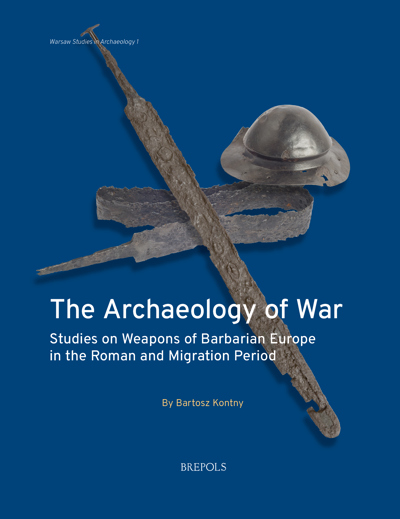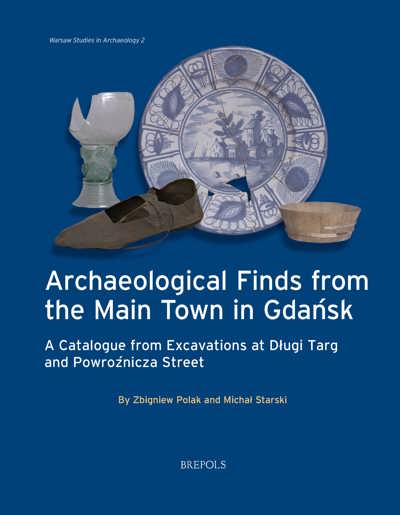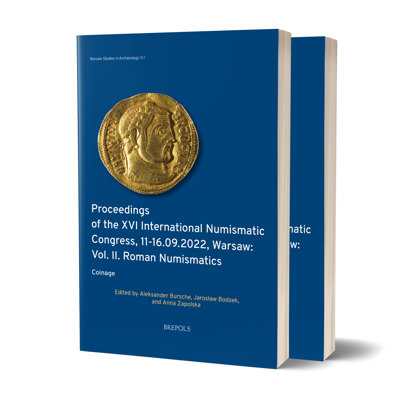
Apsaros: A Roman Fort on the Colchis Coast
Radosław Karasiewicz-Szczypiorski
- Pages: 293 p.
- Size:216 x 280 mm
- Illustrations:164 b/w, 200 col.
- Language(s):English
- Publication Year:2025
- € 155,00 EXCL. VAT RETAIL PRICE
- ISBN: 978-2-503-61857-9
- Hardback
- Available
- € 155,00 EXCL. VAT RETAIL PRICE
- ISBN: 978-2-503-61858-6
- E-book
- Available
Radosław Karasiewicz-Szczypiorski is Head of the PCMA Research Centre in Georgia (Polish Centre of Mediterranean Archaeology, University of Warsaw). From 2012, co-director of the Gonio-Apsaros Polish-Georgian Expedition. The author is also co-director of the Polish-Moroccan research programme Tingitana Frontier Project.
He had previously spent many years investigating traces of the Roman military presence in Crimea (Ukraine).
From AD 63/64, when the Roman Empire annexed the kingdom known as Pontus Polemoniacus, up to c. 257 and the invasion of the Borans, the coast of Colchis, in modern-day Georgia, hosted a Roman garrison system that stretched along the south-eastern edge of the Black Sea. One such Roman fort, at the site of Apsaros (Gonio, Georgia) has been the subject of intensive interdisciplinary research, with a focus on exploring the site and its environs to shed new light on the history, chronology, and periodization of the Roman military presence. From the discovery of traces of the presence of four cohorts of the V Macedonian legion through to analysis of the ruins of the garrison commander’s house, which was equipped with private baths and decorated with mosaics, this volume draws together ground-breaking new research to shed new light on Roman Colchis, the garrisons who lived here, and their complicated relations with local tribes.
List of Illustrations
List of Contributors
Preface
Introduction
Chapter 1. The Apsaros Fort Setting
Chapter 2. Materials and Construction Techniques
Chapter 3. Local Tribes before the Romans and under Roman Administration
Chapter 4. Roman Forts on the Colchis Coast
Chapter 5. The Roman Garrison at Apsaros
Chapter 6. Apsaros outside the Fortifications in the Principate Period
Chapter 7. The Roman Fort during the Principate Period
Chapter 8. The Mosaic Floors from the Roman Commander’s Residence: By Special Order of L. Flavius Arrianus?
Radosław Karasiewicz-Szczypiorski and Natalia Alexandria Lockley
Chapter 9. The Fort and its Vicinity in the Late Roman Period
Chapter 10. The Roman Fort at Apsaros and the Roman Military Presence on the Colchis Coast: Bringing the Evidence Together
Appendix 1. The Roman Fort of Apsaros in Gonio Village: A Brief History of Investigations
Emzar Kakhidze and Radosław Karasiewicz‑Szczypiorski
Appendix 2. Beyond the Walls: Assessment of the Main Results of Archaeological Excavations Outside the Apsaros Fort
Shota Mamuladze †, Kakhaber Kamadadze, and Tatuli Motskobili
Appendix 3. Apsarus in Greek and Latin Geographical Sources from Antiquity and the Early Middle Ages
Tomasz Płociennik
Appendix 4. Engraved Gems from the Roman Fort in Apsaros (Gonio) and the Makho Cemetery
Paweł Gołyźniak and Shota Mamuladze †
Appendix 5. Ceramic Building Materials at the Roman Fort in Apsaros (Gonio): Local/Regional Products or Longdistance Imports?
Małgorzata Daszkiewicz
Figures
Works Cited




